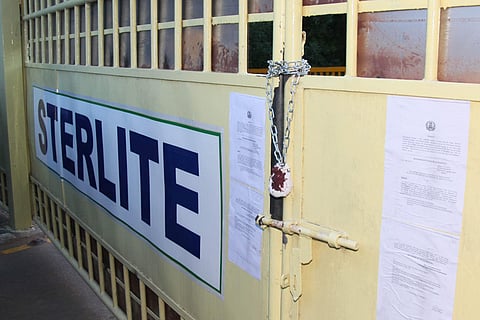

CHENNAI: In a desperate move, Sterlite has offered to invest Rs 100 crores for the people of Thoothukudi that can be used to construct schools, hospitals and supply of drinking water.
The offer was made before National Green Tribunal (NGT), where its plea to reopen its copper plant in Thoothukudi district in southern Tamil Nadu is being heard.
Sterlite counsel C Aryama Sundaram said this Rs 100 Crore is apart from regular social work being carried under Corporate Social Responsibility. Sterlite also has accepted the independent expert
the committee report, which has recommended several measures for the factory to be reopened.
The copper factory at Thoothukudi was closed down by the Tamil Nadu government after the protests against the factory reached a peak on May 22 and 13 people got killed in the firing opened by the police against a massive crowd of protesters.
Here are some of the recommendations of the expert committee constituted by the NGT for reopening of the factory:
1. Sterlite should be directed to monitor groundwater quality including heavy metals such as Arsenic, Cadmium, Silver, Copper, Fluoride, etc. in and around the factory premises and nearby villages once a month and such a report should be furnished to the TNPCB. The sample to be taken from groundwater to be given to TNPCB must be taken in the presence of one TNPCB official.
2. The sampling of effluent/emission and solid waste should also be done by a monitoring group to be constituted by TNPCB comprising a representative of the District Collector, an official of TNPCB, NGOs and academicians.
3. Copper slag dumped at all the eleven sites including the Uppar River should be removed. If copper slag has been used for landfill purposes, then the excess amount of the slag over and above the level
of the ground to be removed and the landfill should be compacted with one foot of soil, so that the copper slag is not blown away by the strong winds.
4. The dead stock of copper slag and gypsum lying in the dump yard inside the factory premises which has solidified should be removed in a time-bound manner. Further, the Company should ensure that the
generation and disposal of copper slag and gypsum is maintained in the ratio of 1:1 and that the Company at best, can retain 10 days generation of both in its dump yard.
5. The State of Tamil Nadu/ TNPCB should collect data from their primary health centres and Govt. Hospitals to monitor the various ailments that are being a complaint of by the inhabitants living in and around the factory premises.
6. Irrespective of the norms, stack height, in any case, be increased in order to remove the ambiguity and the grievance of inhabitants of the people of the Thoothukudi with regard to the emission of Sulphur Dioxide. Till the stack height is increased, the production of copper, as well as sulfuric acid, should be restricted/reduced to match the existing stack height.
7. All the monitoring data, compliance reports of CTE/CTO/EC and environmental statement shall be uploaded on the website of the Company.
8. TNPCB should be directed to commission “Regional Environmental Impact Assessment Study” in and around Thoothukudi district by engaging a reputed national agency.